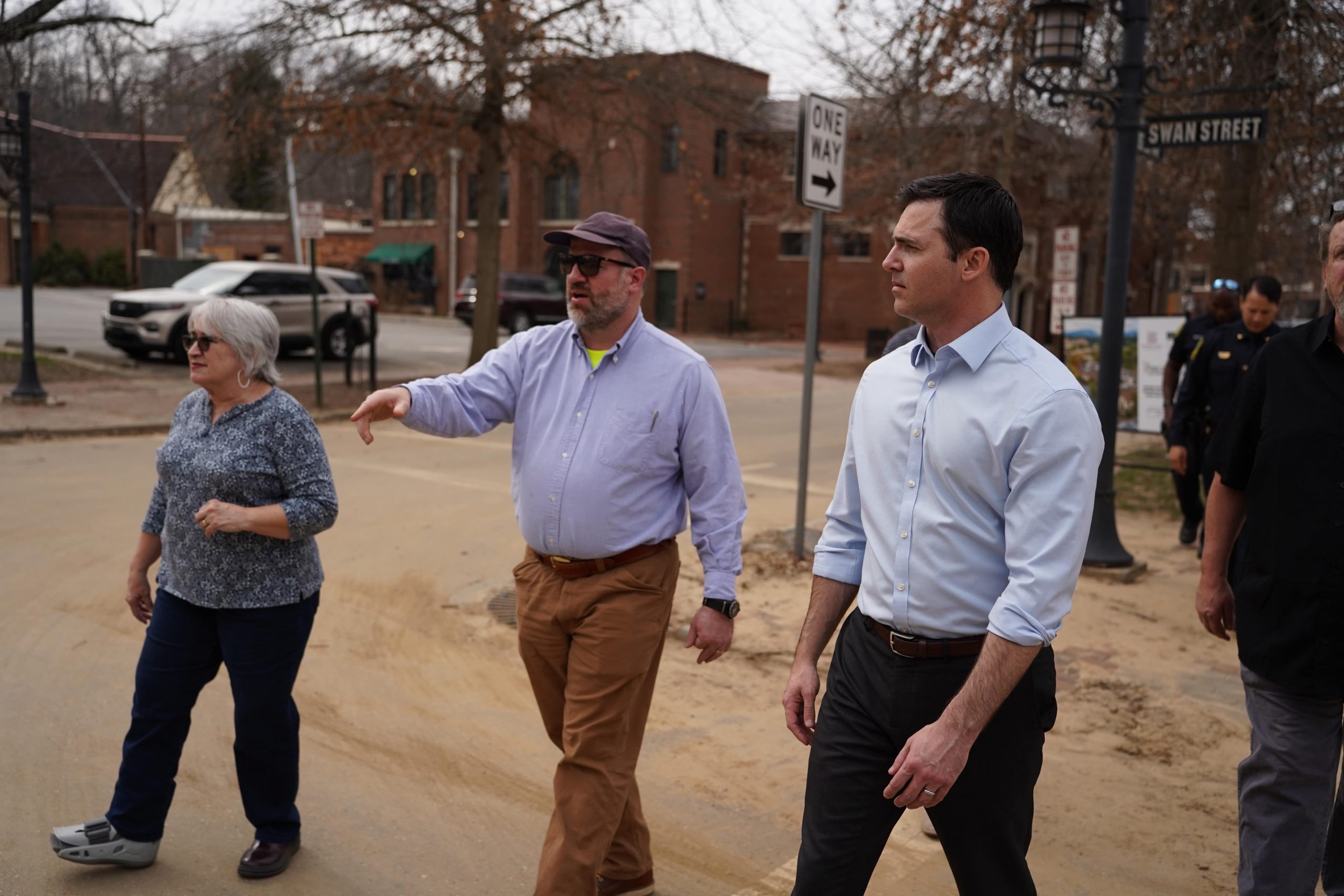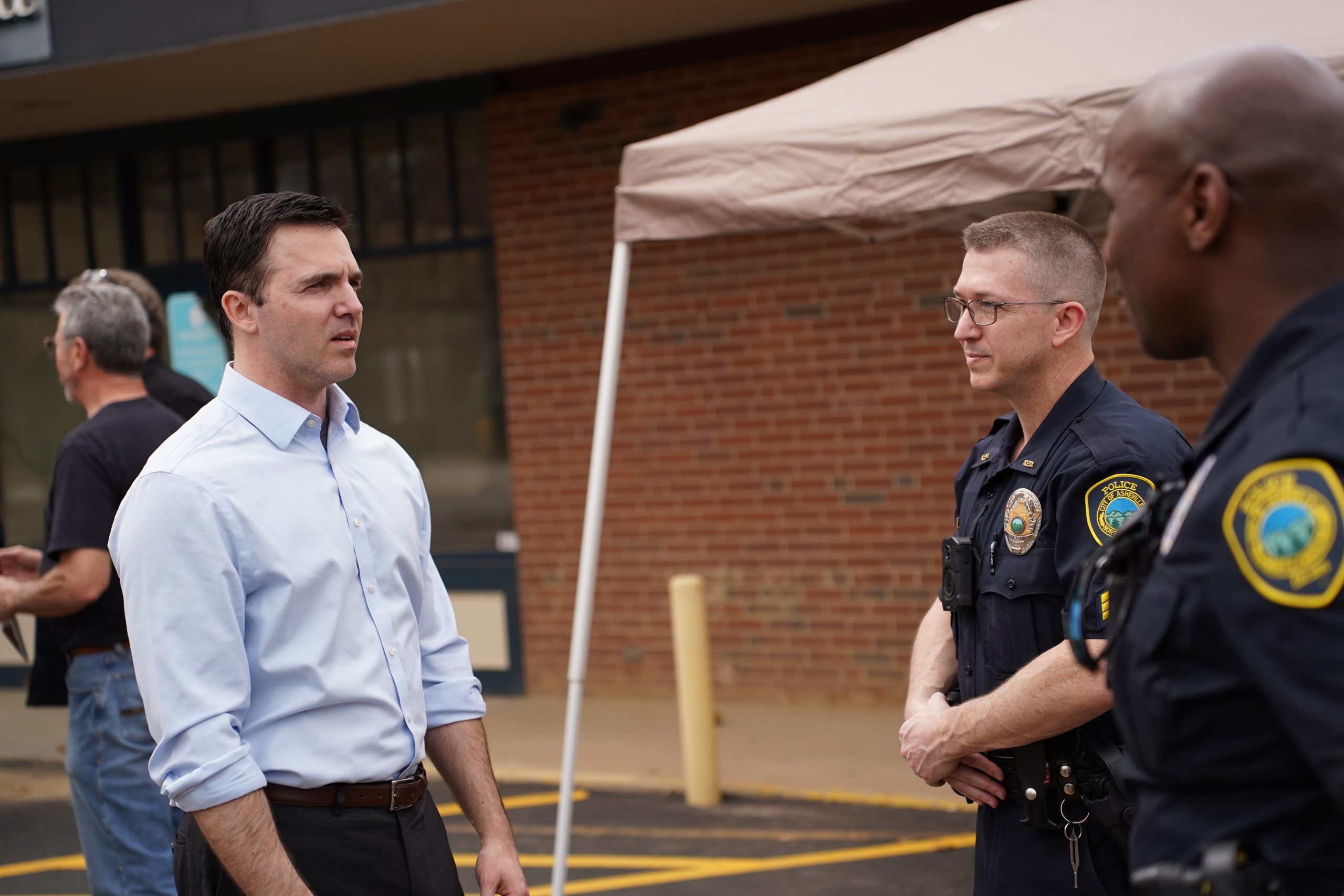Safe to Rebuild
 More than six months on from Hurricane Helene, North Carolina homeowners and small business owners are hard at work rebuilding houses and businesses in western North Carolina. At the same time, scammers and bad actors are looking for opportunities to make a quick buck off North Carolinians – but we won’t let them.
More than six months on from Hurricane Helene, North Carolina homeowners and small business owners are hard at work rebuilding houses and businesses in western North Carolina. At the same time, scammers and bad actors are looking for opportunities to make a quick buck off North Carolinians – but we won’t let them.
Attorney General Jeff Jackson has partnered with law enforcement across North Carolina to launch the Safe to Rebuild initiative. We’re making sure that would-be criminals know that we’re keeping a close eye on western North Carolina, and law enforcement will take action if we suspect property theft, contracting fraud, or other crimes that harm recovery efforts.
We’re also working to share information to help folks in western North Carolina hire reputable contractors who will do good, safe repair work on their homes. Learn more below or contact our office here or at 1-877-5-NO-SCAM.
(Download a printable flyer with these tips in English and Spanish.)
Do your research.
- Get written estimates and compare bids. Avoid doing business with someone who knocks on your door. Instead, ask trusted neighbors and friends for recommendations and compare at least three written estimates before you select a contractor.
- Check the contractor’s license. A contractor must be licensed by the North Carolina Licensing Board for General Contractors for projects costing $40,000 or more. Search the Licensing Board’s website to find out if a contractor is licensed
-
- While an unlicensed contractor may be reputable and able to perform the job, hiring a licensed contractor offers some protection because the Licensing Board oversees licensed contractors and can take action against a licensed contractor that engages in certain unlawful practices.
-
- Hiring an electrician? Search the NC State Board of Examiners of Electrical Contractors website for a licensed electrician here.
- Research the business and business owner. Also look up the operator, point of contact, or project supervisor. Scam contractors often change the name of the business multiple times to avoid getting caught, so the current business name may not show up if you search. Instead, if you search for the name of the owner/operator, etc., you may discover the person has a bad reputation.
- Beware of unsolicited work, such as:
-
- People from out of state who knock on your door offering to do work. They may be scammers who will collect money from several homeowners and then disappear without doing any work.
-
- Someone who knocks on your door claiming to have “extra materials” they can offer you for a “great deal” – like paving scammers. They may not do a great job and they’ll insist you pay more than the quoted price because they claim they did more work.
-
- Unexpected problems that the contractor notices after they’ve started work on a known problem. The new issues may not actually exist, or if they do, the contractor may not be qualified to fix them.
- Contact the Consumer Protection Division (1-877-5-NO-SCAM) and the Better Business Bureau to learn about any complaints against the company.
Ready to hire?
- Get a written contract detailing all the work to be done, including: the price, payment schedule, the work to be done, the quality of materials to be used, and the deadline for completion.
-
- If the contractor doesn’t stick to your contract terms, do your best to demand that the terms be followed. Consider it a warning sign if the contractor tries to move the completion date, cost, etc. If a contractor is straying from your contract, file a complaint at ncdoj.gov/complaint.
- Read your contract carefully. The sales rep may try to rush through your review of the contract or claim that parts of it are not important. All terms in a contract are important, and you should be given enough time to understand exactly what you are signing.

- Remember your right to cancel. Business representatives will often sign up customers at home by using digital contracts on tablets. Under state law, contracts that are signed at a place that is not the seller’s normal place of business, such as at your home, can be canceled up to three days after you sign the contract.
-
- There are exceptions to the laws, but as a general rule, if the transaction is for $25 or more, the buyer has the right to cancel the contract within three business days, and the contract must clearly state this.
Protect your payment.
- Don’t pay in advance. While it is reasonable for a contractor to ask for a deposit, don’t pay for most or all of the work before it is completed. And be suspicious if the contractor repeatedly asks for funds to purchase materials—they may lack the resources and expertise to complete your project.
- Do not pay in cash. If possible, pay by credit card.
Download a printable flyer with these tips in English and Spanish.
If you have questions or concerns, file a complaint with our office’s Consumer Protection Division at 1-877-5-NO-SCAM or online.
About NCDOJ’s Consumer Protection Division
Attorney General Jeff Jackson’s Consumer Protection experts protect North Carolinians from unfair business practices like scams and frauds. NCDOJ defends people against contract fraud by bringing Chapter 75 actions against contractors that defraud North Carolina consumers. We also work to recover funds for consumers in instances where we do not file a case.
Home repair fraud includes unfair and deceptive practices, such as when:
- The contractor takes money for home repairs, remodeling, home additions, or landscaping but doesn’t do the work or otherwise defrauds homeowners.
- The homeowner orders something for the home but the product does not arrive or is not what was ordered (flooring, cabinets, carports, etc.).
- A sales representative solicits the homeowner at home and fraudulently induces the person to purchase or lease something (these door-to-door representatives often target seniors, misrepresenting the terms of the contract and urging the victim to act now).
- A new-home builder defrauds consumers.
